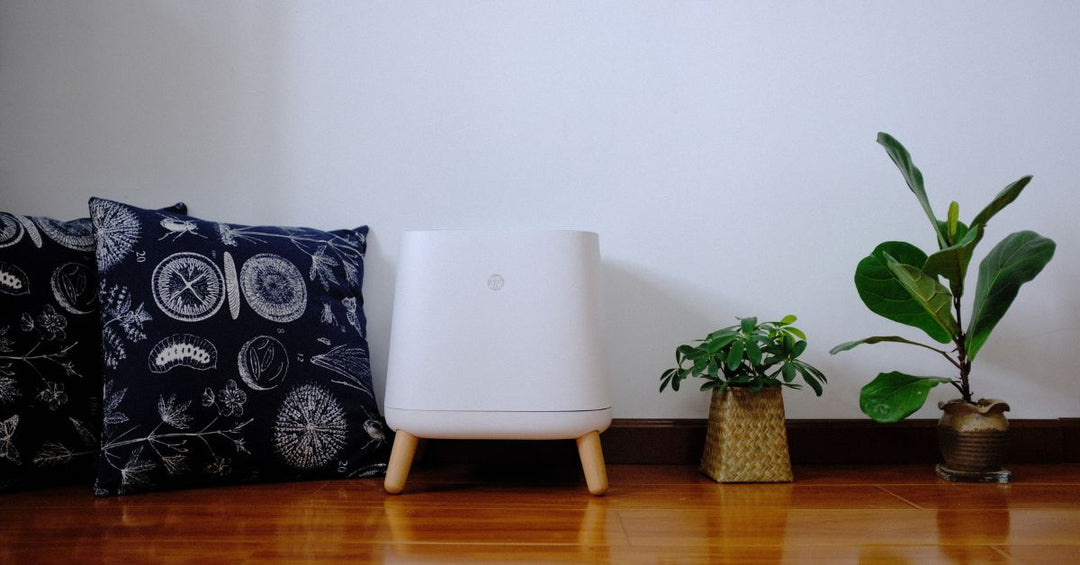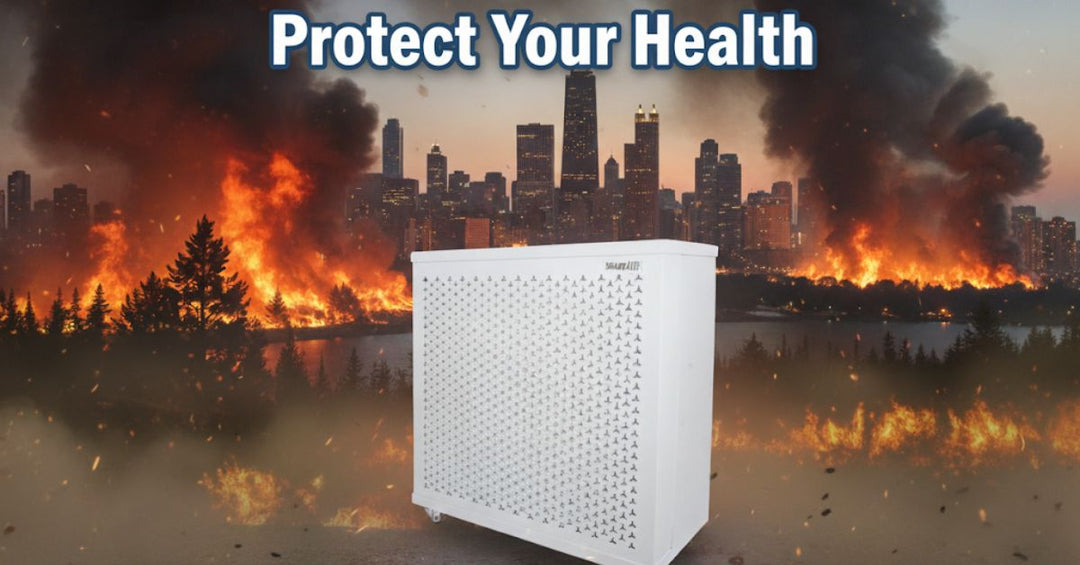8 Must-Know Health Benefits of Air Purifiers for Your Home
Airborne pollutants are a part of daily life, both inside your home and outside. Research by the United States Environmental Protection Agency (EPA) has shown that indoor air can be up to five times more polluted than the air outdoors! Contaminants like mold spores, dust mites, and pet dander can all negatively impact your indoor air quality and harm your overall health.
You want your home to be a welcome respite from those contaminants in the air—and luckily, adequate air purification can help you achieve that goal. As you shop for an air purifier for your home, learn more about the health benefits you need to know regarding indoor air purification.
Reduces Your Chances of Airborne Disease
Over the past three years, individuals worldwide have learned just how dangerous airborne contaminants can be. Bacteria and virus particles are invisible to the naked eye but can cause infections that are highly unpleasant—and possibly deadly to those with compromised immune systems.
Air purifiers that feature true HEPA filters can capture 99.97 percent of airborne particles that are 0.3 microns or larger. However, many bacteria and viruses are smaller than that—the COVID-19 virus, for example, averages 0.06 to 0.14 microns in diameter. HEPA filters can target these nanoparticles through a process called diffusion.
Scientists at the University of Minnesota tested true HEPA filters against lower-grade fiberglass furnace filters by forcing tiny silver nanoparticles through both filters. The results of their experiment showed that true HEPA filters can capture 99.99 percent of particles smaller than 5 nanometers, or 0.005 microns. Therefore, an air purifier fitted with a true HEPA filter can remove the vast majority of bacteria and virus particles from your indoor air.
Relieves Allergy Symptoms
Do you or any members of your household have allergies, seasonal or otherwise? A true HEPA air purifier pulls allergens out of the air, reducing your chances of inhaling them and experiencing an allergic reaction.
Multiple studies have been performed on the efficacy of HEPA air purifiers against allergens. In 1990, the Journal of Allergy and Clinical Immunology published a double-blind study on the effects of HEPA filters on individuals with allergies. Their findings showed that allergy sufferers who used HEPA purifiers saw a significant reduction in their symptoms within two to four weeks.
Common allergens that a HEPA air purifier can remove from your air include, but are not limited to:
- Animal dander
- Pollen
- Dust mites
- Insect detritus
Decreases Risk of Diabetes
In 2016, scientists in Denmark performed a study examining the correlation between type 2 adult-onset diabetes and the inhalation of particulates less than 2.5 micrometers, or PM2.5. They performed the study on the Danish Nurse Cohort and found that individuals in more polluted areas were at a higher risk of developing diabetes in adulthood. Specifically, for every 10-micron increase in particulate pollution, diabetes risk increased by 39 percent.
While there are certainly other factors that contribute to adult-onset diabetes, decreasing your pollutant exposure can absolutely decrease your risk. Using a large room HEPA air purifier in the most lived-in areas of your home can lower your indoor PM2.5 exposure by over 99 percent.
Reduces Mold Spores in the Home
Mold growth is both a figurative and literal headache for homeowners. You can’t see the spores that float around in the air, but those spores are a fungus’s equivalent to seeds. Long-term exposure to mold and mildew spores can cause the following symptoms in those who breathe them in:
- Allergic symptoms like sneezing, coughing, and itching
- Chronic headaches and brain fog
- Immune system dysfunction
- Neurological symptoms like mood changes and memory loss
The average mold spore is between 3 and 40 microns in diameter, so they are easily picked up by true HEPA air filters. A 2009 study by Huang and Kimbrough showed that air purifiers significantly improved mold allergy symptoms when used consistently in the home.
Lowers Blood Pressure
Multiple studies have shown that reducing your PM2.5 exposure, even by small increments, directly correlates with a reduction in blood pressure. A study performed between 2002 and 2003 examined 347 adults living in the greater Detroit area and found a link between heightened PM2.5 exposure and increased systolic blood pressure.
This correlation is due in part to air pollution causing inflammation in the body, as well as pollutant particles entering the bloodstream and increasing pressure. A 2020 study published in the Hypertension online journal examined the effects of air purification on blood pressure in 605 adult participants. Results indicated that even a PM2.5 reduction of only 5 micrograms lowered systolic pressure by 3.7mmHg.
Soothes Asthma Symptoms
While asthma is a chronic disease that HEPA air purification can’t cure outright, using an air purifier can certainly help relieve your symptoms. Asthma attacks are often linked to air pollutants like smoke, dust, and animal dander—all of which can be caught in a true HEPA filter.
The key is to choose an air purifier fitted with a true HEPA filter, or one that captures 99.97 percent of particulates larger than 0.3 microns. That 0.3 micron size is one of the most difficult for filters to capture; if your HEPA filter is able to grab them, it will also easily filter out larger and smaller particles.
A Quick Reminder:
Even if you’re looking forward to breathing cleaner air and getting some relief with a HEPA air purifier, continue taking any asthma medication prescribed by your doctor.
Improves Cognitive Function
Researchers at Harvard University conducted a study in 2021 examining the effects of poor indoor air quality on office workers. They found that breathing polluted, stale air is connected to slower response times and difficulty processing new information—the dreaded brain fog.
The same principles apply in the home as in the office. High levels of PM2.5 pollution are connected to cognitive dysfunction, so removing those particulates from the air can improve your thinking abilities.
Minimizes Carcinogen Exposure
Polluted indoor air doesn’t just contain common allergy triggers and garden-variety viruses; it can also carry chemicals that cause cancer. If somebody in your home smokes cigarettes, or if you are exposed to asbestos, you are at greater risk of developing certain cancers.
Luckily, true HEPA air purifiers are adept at pulling those particles out of circulation and trapping them in their filters. Most smoke particles range between 0.1 and 1.5 microns in size—well within range for a HEPA purifier to tackle. Asbestos particles are even bigger—between 0.7 and 90 microns—so they’re easily removed by a true HEPA purifier.
While a true HEPA air purifier isn’t a magical cure-all for various health concerns, using one in your home can improve your overall health by reducing your pollutant exposure. Breathing cleaner air is scientifically connected to lessened severity of allergies, lowered exposure to carcinogens, and improved brain health.
If you’re looking for an air purifier for your home, remember these must-know health benefits of adequate air purification with true HEPA filters. Better health starts with small, everyday lifestyle adjustments; start by cleaning up the air you breathe in your home.





